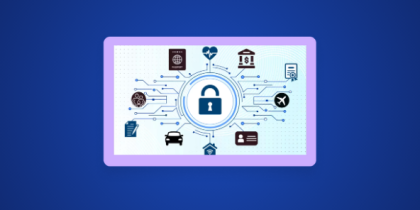With PureVPN’s Password Manager, KNP’s weakest link could have been its strongest defense.
For 158 years, KNP Logistics Group thrived as one of the UK’s most resilient transport companies, surviving wars, recessions, and shifting markets. But in June 2025, the historic firm collapsed overnight, not because of economic turmoil or fierce competition, but because of a single weak password.
The attack by the Akira ransomware gang highlights a brutal truth: in today’s cyber landscape, one careless credential can undo centuries of business resilience.
Your credentials may be at risk.
Run a free email scan to see if your data has been exposed — no signup needed.
How Did Hackers Breach KNP’s Defenses?
Cybercriminals didn’t need sophisticated exploits or phishing campaigns. Instead, they gained access through a guessable password belonging to a senior executive. Without multi-factor authentication in place, the attackers slipped into the company’s network and deployed ransomware across its systems.
The result was catastrophic. Critical business data was encrypted, backups were destroyed, and recovery systems were disabled. When the attackers demanded £5 million, KNP couldn’t pay. Within weeks, 700 employees were jobless, and the firm’s operations ground to a permanent halt.
Why Are Weak Passwords Still a Cybersecurity Blind Spot?
Despite decades of awareness campaigns, weak passwords remain one of the most common causes of breaches. A Kaspersky study found that 45% of compromised passwords can be cracked in less than a minute, while 65% of users admit to reusing credentials across multiple accounts.
These oversights provide cybercriminals with low-cost, high-reward entry points. In fact, IBM’s 2023 report showed the average global cost of a data breach has climbed to $4.45 million, making password negligence not just risky, but ruinously expensive.
What Were the Human and Economic Consequences?
KNP’s collapse didn’t just shutter a business; it devastated a community. Seven hundred employees lost their jobs, customers were left stranded, and a regional economy lost one of its key service providers. A company that had withstood the test of time was erased in days, proving that cybersecurity failures ripple far beyond servers and spreadsheets.
For survivors of ransomware attacks, reputational harm, legal liabilities, and regulatory penalties often follow. In KNP’s case, the company never even got the chance to rebuild.
Why Are UK Businesses Becoming Prime Targets?
KNP is not alone. According to government surveys, nearly 19,000 UK businesses faced ransomware attacks last year. Major retailers like M&S and Harrods have also been hit. Criminal groups such as Akira and DragonForce are capitalizing on Ransomware-as-a-Service models, lowering the barrier for entry so even low-skilled attackers can launch devastating campaigns.
This trend makes one fact clear: no company, regardless of size or history, is too safe to be targeted.
How Can Businesses Close the Password Gap for Good?
The most effective step is eliminating weak passwords altogether with a password manager. Solutions like PureVPN’s Password Manager generate unique, complex credentials for every account, store them in a fully encrypted vault, and auto-fill them securely across devices. This removes the temptation for employees to reuse or simplify passwords, cutting off one of the easiest routes for hackers.
By automating strong password practices, businesses can prevent the very mistake that cost KNP its survival.









